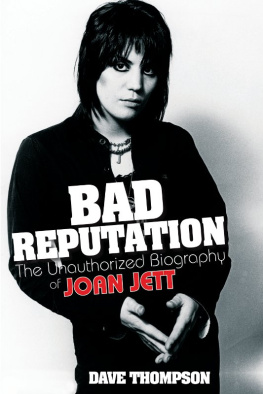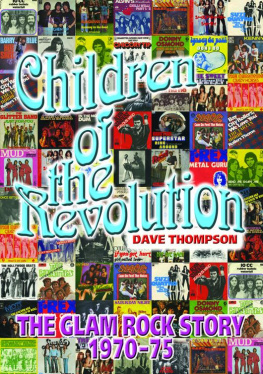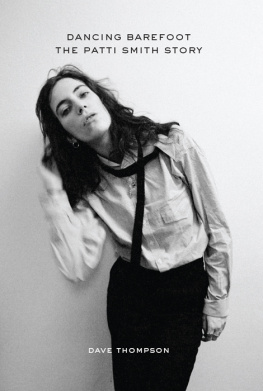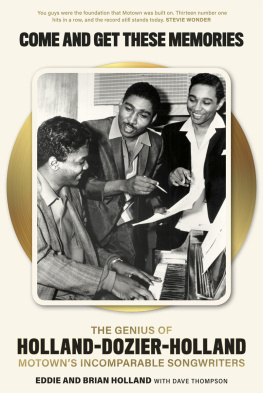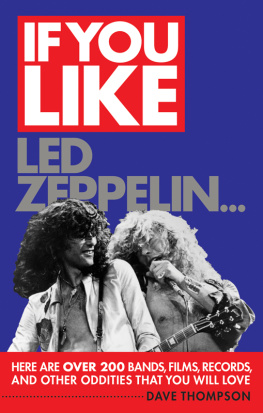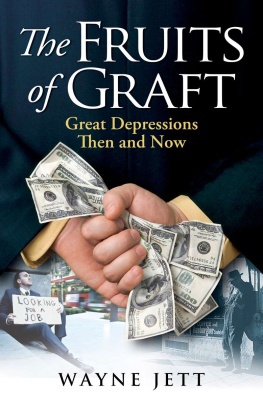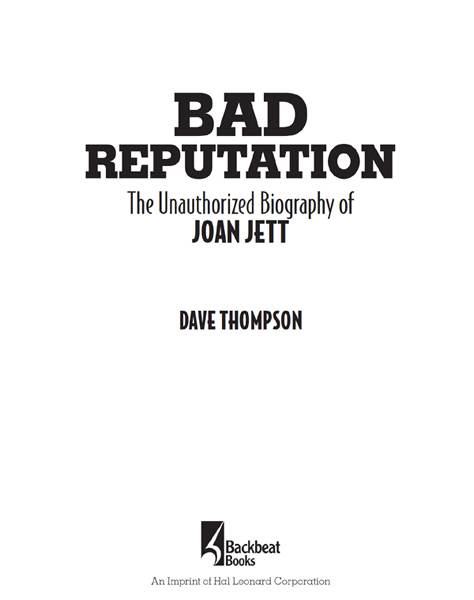Copyright 2011 by Dave Thompson
All rights reserved. No part of this book may be reproduced in any form, without written permission, except by a newspaper or magazine reviewer who wishes to quote brief passages in connection with a review.
Published in 2011 by Backbeat Books
An Imprint of Hal Leonard Corporation
7777 West Bluemound Road
Milwaukee, WI 53213
Trade Book Division Editorial Offices
33 Plymouth St., Montclair, NJ 07042
Book design by Publishers Design and Production Services, Inc.
Library of Congress Cataloging-in-Publication Data
Thompson, Dave, 1960 Jan. 3
Bad reputation : the unauthorized biography of Joan Jett / Dave Thompson. 1st pbk. ed.
p. cm.
Includes bibliographical references.
ISBN 978-0-87930-990-9
1. Jett, Joan. 2. Rock musiciansUnited StatesBiography. 3. GuitaristsUnited StatesBiography. I. Title.
ML419.J48T46 2011
782.42166092dc23
[B]
2011027282
www.backbeatbooks.com
To Poly Styrene (19572011) and Ari Up (19622010)
without whom Joan would have been even more alone
Contents
Nobody lives their entire existence in the spotlight, doing remarkable things all the remarkable days of their remarkable lives. Which is wonderful for them, because we all need some downtime. But its a bitch for the biographer, who takes a thirty-plus-year fascination with an artist and tries to tell his or her story.
Its not true that people become less interesting as they grow older. In fact, the opposite is probably the case, as experience and knowledge build around enthusiasm and talent. But there is a tradeoff. Without a single, solitary exception, artists, and especially rock n roll artists, are at their most energetic and active in the years before they make it big.
Those are the years during which they create their mythologies; those are the years during which they write their stories. The decades after that may not always flow smoothly and will certainly have their own tales to tell. But in terms of a cohesive narrative that doesnt simply bound from one stadium tour to the next, via an album that may or may not be as good as the first few, its the years of struggle, acceptance, and consolidation that paint the conquering hero, whereas those that follow simply bring the portrait up to date.
The Joan Jett story is different. For sure, it is the first six years of her career that hold the most interest and saw the most action, but what is remarkable about Jett, and what made this book such a joy to write, is the way she has constantly succeeded in renewing not only herself but also (to use that most hateful of modern marketing terms) her brand.
In 1988, with the chart-topping I Love Rock n Roll already six years worth of underperforming singles behind her, it would have been easy for Jett to have bowed to the inevitable and joined the rest of the early 80s hit parade on the set of Where Are They Now? Instead, she turned around and had one of the biggest hits of her life.
She could have lined up there again in 1994, when I Hate Myself for Loving You was equally buried beneath half a decade of underachievement. Instead, she reemerged as the figurehead for one of the most crucial musical movements of the postpunk era.
And so on. Whenever it seems safe for history to finally draw a line beneath Joan Jetts career, she turns the tables on the doomsayers and reminds them not why she was so important way back when, but why she continues to be important today.
Its not because shes a woman, or even because shes a gay woman. Unlike so many of her peers, Jett has never defined herself by what she is. She has no need tothere are almost forty years worth of music critics who have done that for her.
Its not because shes one of the best American rock songwriters of her age, nor because she has a talent for turning out cover versions that are often as good as, or stronger than, the originals. Again, those are observations that the critics can either make or not make, and besides, few artists can ever be truly subjective about their own work.
Joan Jett is important because it doesnt matter when you started listening to her music: in 1976, with the Runaways hurling cherry bombs out of the radio; in 1980, when she had a bad reputation; or in 1982, when all that was suddenly forgiven; later in the decade or early in the 90s; onstage or on Broadway or even on the silver screen Whenever it was, she was making the music that you grew up with, and the kind of music that you wished you could listen to forever.
It doesnt matter that it wasnt always what the industry would call commercially successful, because the industry was saying that about her right up until the moment I Love Rock n Roll went into the Top 40. The fact was, in one corner of that industry, away from all the bullshit and bluster that normally surrounds the superstar machine, Jett never stopped dropping a dime into her private jukebox and then playing along with what came out.
In June 2010, Jett took the stage at Wembley Stadium in London, one of the largest venues that the United Kingdom has to offer. Twenty-eight years earlier almost to the day, she was preparing to take the stage at the Milton Keynes Bowl, another of Britains biggest concert arenas. And in between times
Whenever she toured, whether stadiums or clubs, theaters or casinos, there would be a roomful (literally, full) of people of every generation, and all were there to hear their youth come back to life or to experience their youth for the first time, because Jetts appearance on the Warped tour in 2005 proved that age and status mean nothing whatsoever. What matters is what artists put into their music and what theyre willing for the crowd to take away from it. Jett has always put everything in, and her audience has always taken it away.
Since the days of the Runaways, Joan Jett has literally created the soundtrack to our lives, and if this story seems to spend more time on the years when she was building her own life, then thatto return to my opening thoughtsis simply the nature of the beast in general, and Joan Jett in particular.
She gets on with her job. There have been (with one storm-in-a-teacup exception) no vividly sensational tabloid headlines with which to while away a few chapters. There have been no high-profile explosions or behind-the-scenes implosions (or none that anybody wants to talk about, anyway). There has been no gradual mellowing, or slackening of furyonstage in 2011, Joan Jett is the same ball of energy that she was back in 1976, and because she often plays the same songs she did back then, its easy to compare the two.
Offstage, too, she just gets on with her life, overseeing the vast business empire that she and longtime manager Kenny Laguna launched from the trunk of his Cadillac in 1980writing and recording for the next CD; rehearsing for the next tour; and the rest of the time, living as quietly and normally as anybody else. In fact, there are probably times when even she forgets that shes Joan Jett, which means that when one of her records comes on the radio, she can get as excited about it as the rest of us.
That is what this book is about. It is a celebration of an artist who remains as vital and vibrant at fifty-plus as she was when she was sixteen or less. Because if Joan Jett wasnt writing, recording, and playing the best goddamned straight-ahead, down-the-line, and in-your-face rock n roll music in the world who would?
Dave Thompson
Delaware, June 2011
The fact that The Runaways picked up guitars was not accepted. And me, being one of the louder ones with the leather jacket and the heavy eye makeup, I was just pushing the envelope. We were called sluts, whores, and dykes all the time. And we were constantly laughed at by bands we played with, by the crews, and by the press. It was just totally frustrating. I didnt get it.

